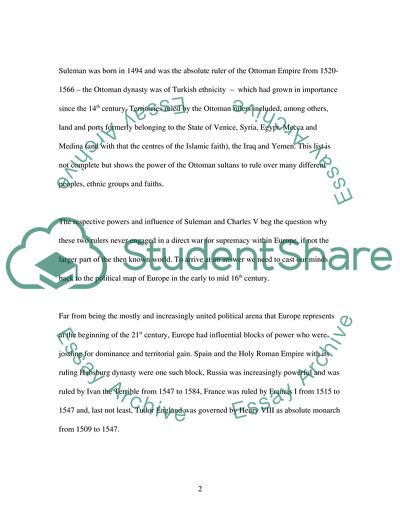Cite this document
(International Policy Of Suleiman The Magnificent and Charles V Empires Essay, n.d.)
International Policy Of Suleiman The Magnificent and Charles V Empires Essay. Retrieved from https://studentshare.org/history/1730563-why-didnt-suleman-the-magnificent-and-charles-v-ever-been-in-war-against-each-other
International Policy Of Suleiman The Magnificent and Charles V Empires Essay. Retrieved from https://studentshare.org/history/1730563-why-didnt-suleman-the-magnificent-and-charles-v-ever-been-in-war-against-each-other
(International Policy Of Suleiman The Magnificent and Charles V Empires Essay)
International Policy Of Suleiman The Magnificent and Charles V Empires Essay. https://studentshare.org/history/1730563-why-didnt-suleman-the-magnificent-and-charles-v-ever-been-in-war-against-each-other.
International Policy Of Suleiman The Magnificent and Charles V Empires Essay. https://studentshare.org/history/1730563-why-didnt-suleman-the-magnificent-and-charles-v-ever-been-in-war-against-each-other.
“International Policy Of Suleiman The Magnificent and Charles V Empires Essay”, n.d. https://studentshare.org/history/1730563-why-didnt-suleman-the-magnificent-and-charles-v-ever-been-in-war-against-each-other.


